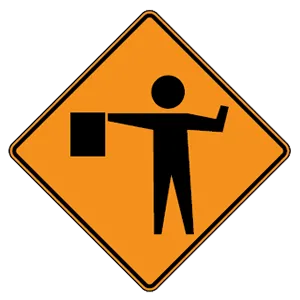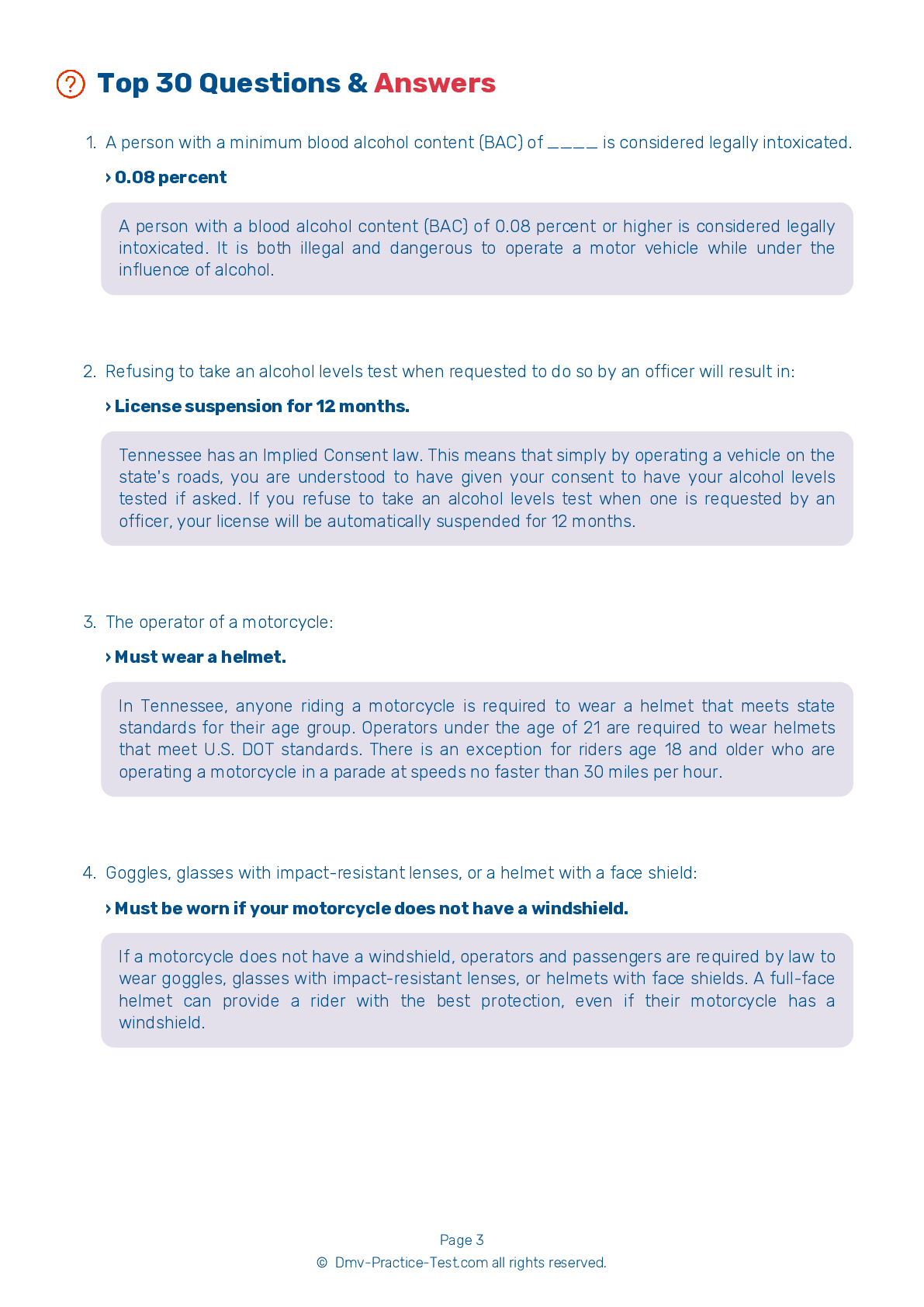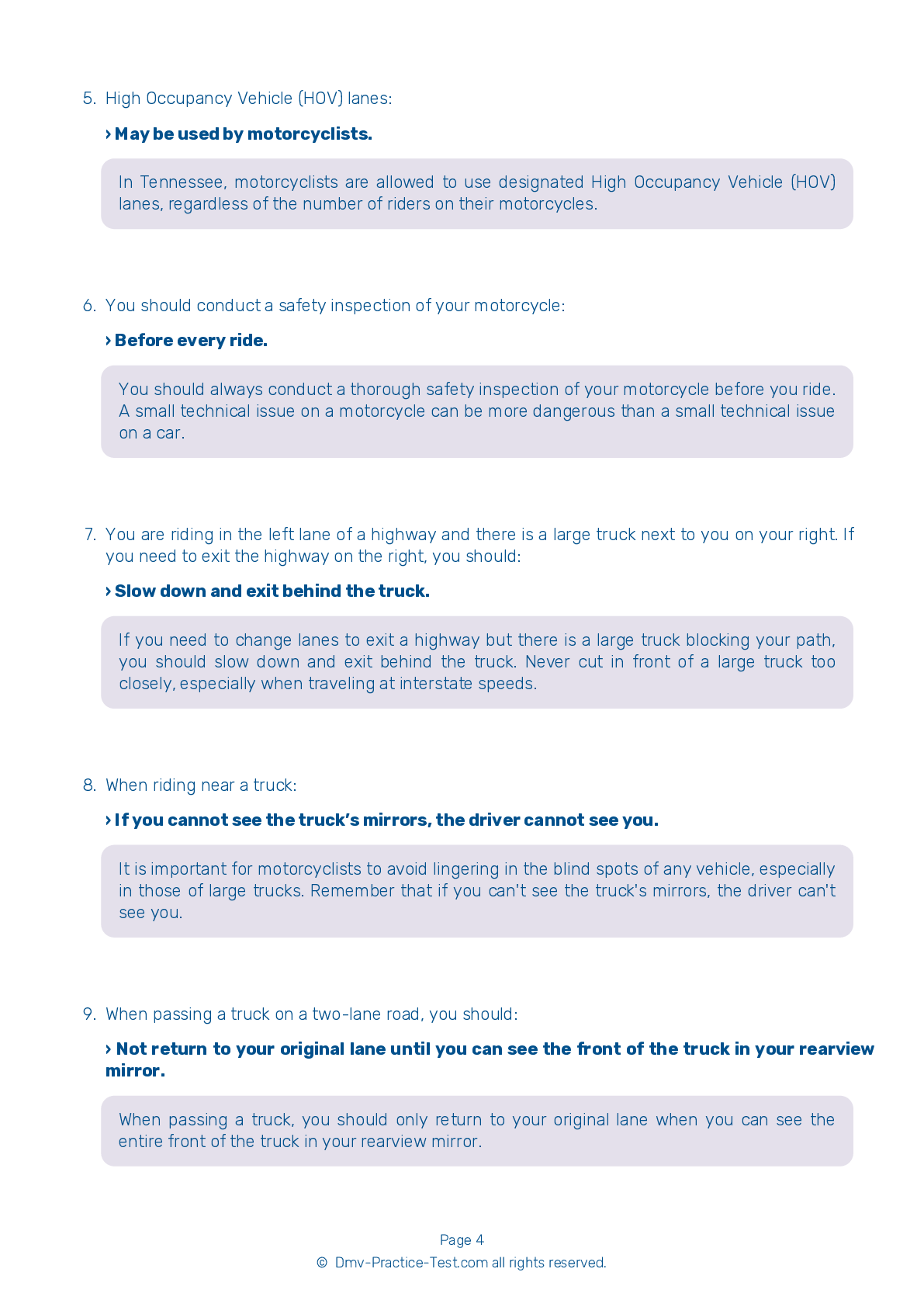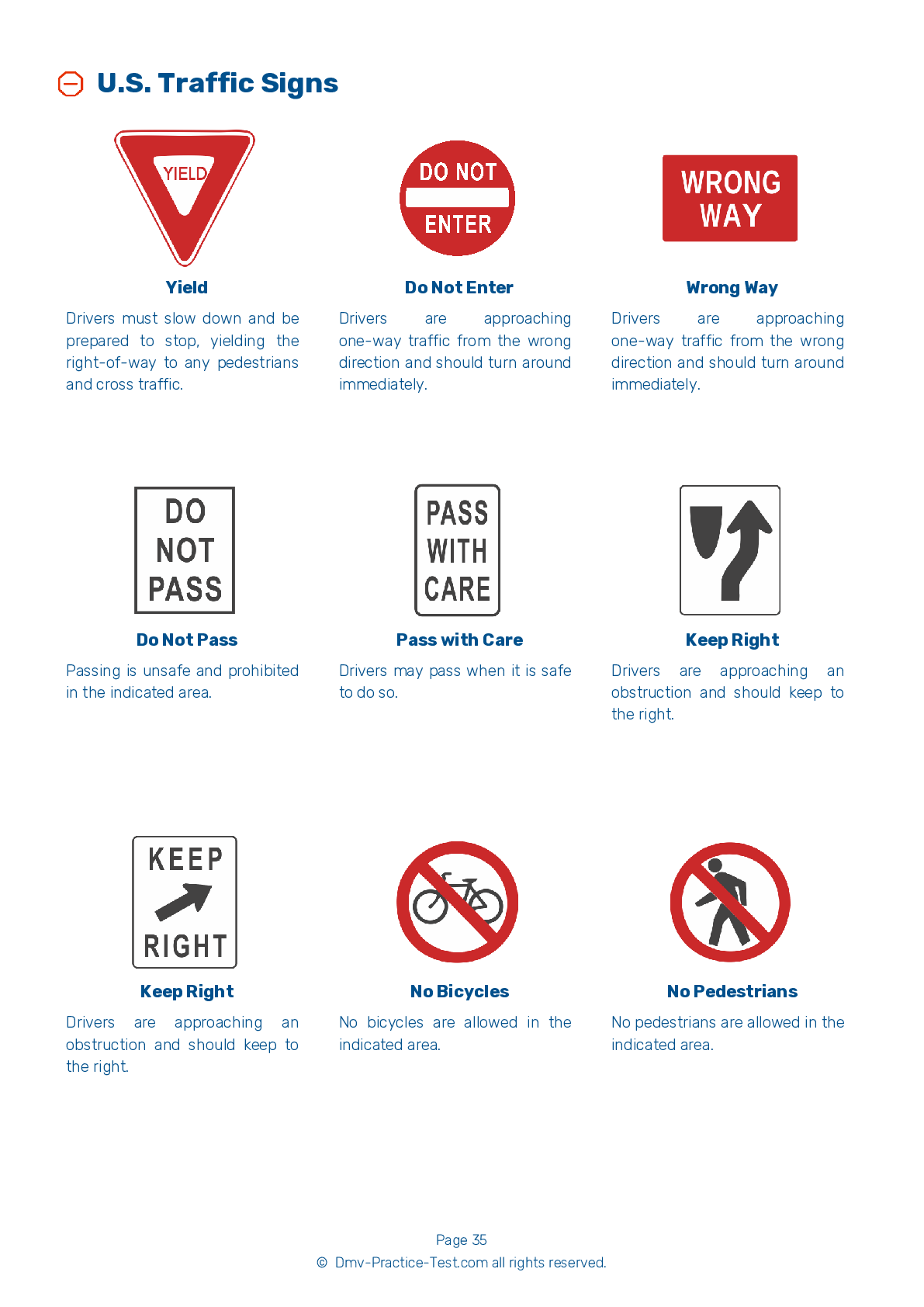Motorcycle Test | License TN 2026 | FREE Online Practice! #1
Take this FREE motorcycle test (license in TN 2026) to check your knowledge of the road rules. To improve your results, download a motorcycle handbook online, study theory, and practice for free on our website. Still worried about how to get a motorcycle license in Tennessee in 2026? Check our website for more sample tests, train as much as possible, and boost your grades!
1 . When carrying a passenger, a motorcycle takes:
The more weight being carried by a motorcycle, the more time the motorcycle takes to accelerate and decelerate. Your motorcycle will respond to your commands more slowly when carrying a passenger than it will when you are the only person on the bike.
2 . This road sign means:

Orange is the standard color for work zone activity. If you see orange signs, cones, or barrels while driving, stay alert and be prepared for unexpected driving conditions. This sign alerts drivers to an upcoming flagger whose directions should be obeyed by all drivers.
3 . If you need to react to a hazard in the road, do not:
To create more space and minimize the harm of any hazard, communicate your presence to other road users by using your horn, lights, and/or signals. Adjust your speed to be appropriate for the situation and adjust your lane position and/or direction of travel as needed.
4 . Before riding, a motorcycle operator should check the clutch. A properly working clutch should feel:
Check your clutch and throttle before riding your motorcycle. The throttle should snap back when you let go and the clutch should feel tight and smooth.
5 . When slowing down or stopping, you must:
Shift down through the gears as you slow down or stop. Stay in first gear while you are stopped to ensure that you can move quickly if you need to.
6 . Whichever style of helmet you choose, you will get the most protection by ensuring that your helmet:
You will get the maximum protection from your helmet if it meets U.S. Department of Transportation (DOT) and state standards, fits snugly all the way around, and has no obvious defects.
7 . If you are riding behind another vehicle at night, you can determine if there are bumps on the road ahead by:
To determine upcoming road conditions when riding at night, use the vehicle ahead of you. For example, the headlights of the vehicle may provide a better view of the road than your own high beam. If the vehicle's taillights bounce up and down, this indicates the presence of bumps on the road.
See the exact questions that will be on the 2026 Tennessee DMV exam.
99.2% of people who use the cheat sheet pass the FIRST TIME
Jeneen was tired of paying $5/gallon. She got herself a scooter that required the motorcycle license. She studyed the motorcycle test cheat sheet and passed her test the next day!
Christopher tells us how he knew nothing prior to obtaining the motorcycle study guide, and he only got one question wrong because he clicked on the wrong answer by mistake.



